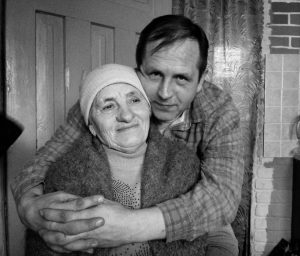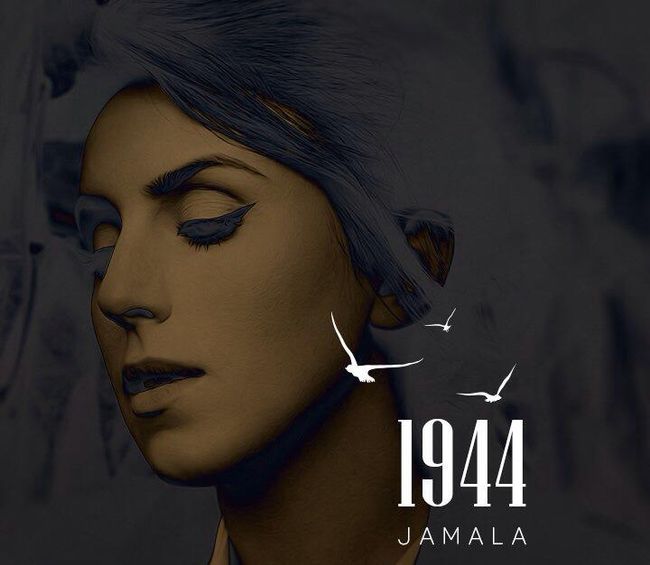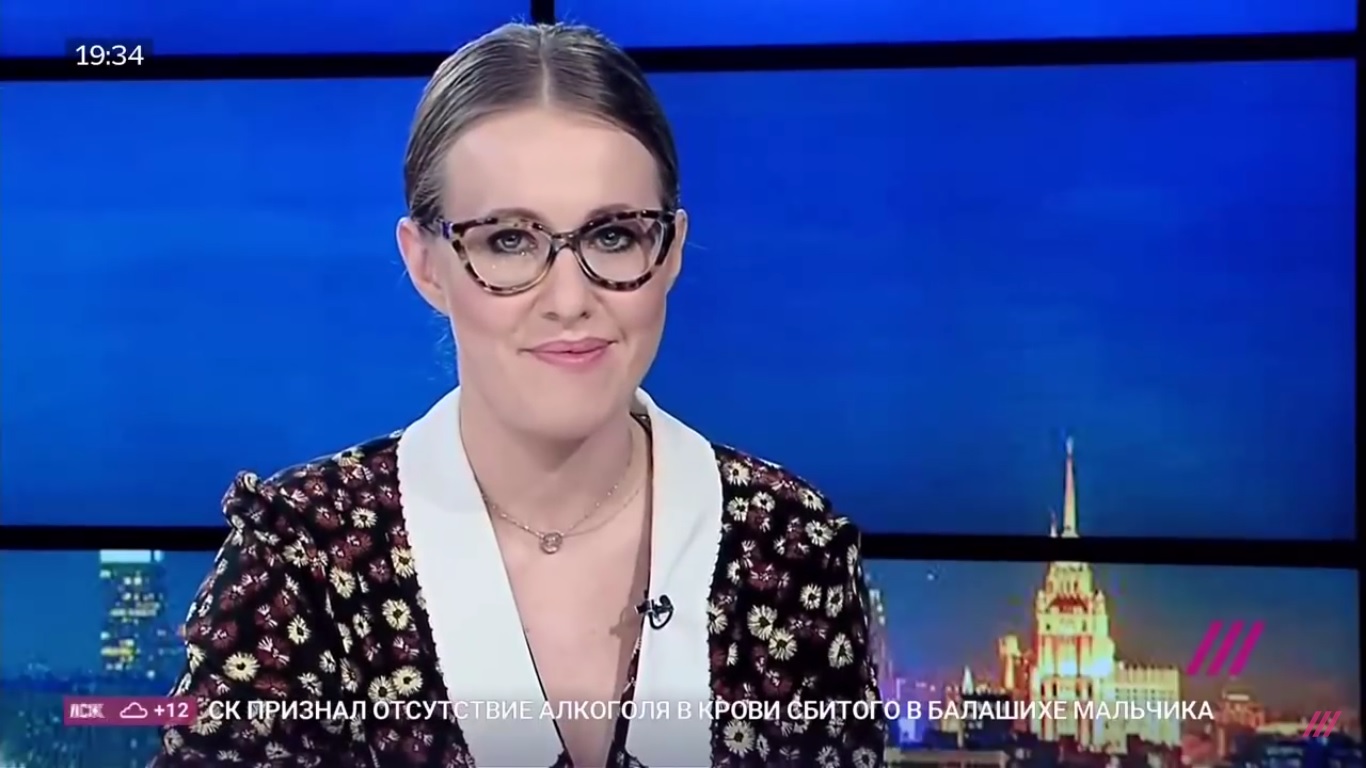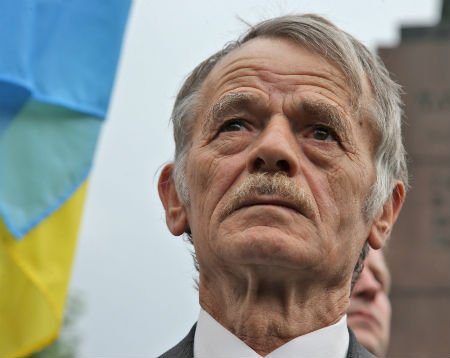The mission to Crimea met with more than 50 people, including victims of human rights violations and their relatives; mothers and wives of political prisoners; as well as journalists, lawyers, and civic activists. Many people spoke of feeling abandoned and forgotten.
“Support from outside of Crimea is very important. For those behind bars, when they receive letters, when they know that outside someone is speaking about their cases and drawing the attention of the international community to what is happening here, when someone comes to Crimea to listen to their stories, all of that is extremely important. This is not a way to live, but it is a way to resist,” said a lawyer defending political prisoners in Crimea.
During the first weeks of the occupation by the Russian Federation, paramilitary groups were deployed throughout the peninsula, spreading fear among the population, carrying out raids and searches, and abducting and killing people. During the months following the occupation, the Russian Federation gradually consolidated its institutional control and built-up its state structures in Crimea. The methods of repression changed, becoming more systematic and coordinated.
Laws on terrorism and extremism
The anti-extremist legislation of Russia began with the extremism law adopted in 2002.
Following amendments in 2007 and 2014, so-called “extremist” actions have been subject to prosecution, regardless of their nature or the level of public danger. Lawyers who spoke to the mission explained that courts operate correctly in civil cases, and in some administrative cases, provided the cases are not “political.” In politically motivated cases, deemed arbitrarily, the judiciary remains a major tool of persecution and is used by the executive authorities to deter criticism and stifle dissent.
While Crimea was recognized as a part of Ukraine, the concept of extremism did not exist nor did such laws.
“Before, there was no forbidden literature; it was possible to go to the mosque when you want, read what you want; the person themselves chose what they needed, what not. The situation is completely different in Russia: you can’t think this way; say something this way; you can’t walk like this, you have to be in the mosque at a certain hour,” explained a person interviewed by the mission.
Now it is a criminal offense to declare opposition to the occupation and state that Crimea is part of Ukraine—these actions are prosecuted by the Russian Federation authorities.
Moreover, the Russian Federation State Duma introduced the application of criminal law of the Russian Federation retroactively to acts committed in Crimea before 18 March 2014. This contravenes a fundamental principle of international law—one that is also contained in the Constitution of the Russian Federation.
Re-registration of all NGOs and media
After the occupation, media outlets, civil society organizations, and religious communities, which previously operated openly under Ukrainian law, were obliged to re-register under new, highly restrictive Russian legislation. Many organizations left the peninsula due to persecution and for safety reasons. Others, because they declined to go through the Russian imposed re-registration process.
When reviewed, as of 4 September 2017, 1,852 NGOs were registered in Crimea, compared to 4,090 in mid-March 2014—almost half were out. Since the occupation, the number of religious organizations has also come close to the half-mark. Editors of media were repeatedly warned they would not be allowed to register if they disseminated “extremist” materials. Only 232 media outlets were able to successfully re-register, compared to the more than 3,000 that were registered prior to the occupation.

Laws on mass media
The “Yarovaya Laws” adopted in 2016 set prison terms of up to seven years for ostensibly encouraging or justifying terrorism either publicly or online. The ambiguity of these laws permits the authorities to lay charges for almost any Internet post that positively characterizes Ukraine or Ukrainian activists.
Roskomnadzor, the Russian media regulator, has the authority to extra-judicially determine whether information online includes “forbidden content,” and to impose sanctions, such as ordering its removal, blacklisting web-pages and websites, and even directing service providers to block content.
As of July 2016, providers and operators are required to store information on users’ communication activities, and as of July 2018 to store all communication content. Information must be stored for at least six months and security services have full access to it.
“Crimea used to be a politically active region, with its own mentality. Now it is as if everybody has inhaled some kind of a gas—no one speaks, there is silence here, like in a cemetery,” one person told the Human Rights Houses mission, speaking about the climate of uncertainty and fear.
During raids on the homes of Crimean Tatars, people from the vicinity gather to watch and take pictures and videos to share online. They are often threatened with arrest for streaming the events. These “citizen” journalists and bloggers who report independently on what is happening in Crimea are becoming the new targets of repression.
Associations and assemblies restrained
The Russian Law “On assemblies, rallies, demonstrations, marches, and pickets” of 2004 has been amended several times, adding more-and-more restrictions, particularly in 2012 and 2014. The numerous changes have de facto created an authorization-based system and introduced administrative offences.
The Mission heard from people who are charged with administrative offences in the context of assemblies. Charges are also brought for “unauthorized assemblies” against single-person protests, although according to Russian Federation legislation, individual protests do not require pre-authorization. In October 2017, some 100 Crimean Tatar men conducted single-person protests against the arrests in various places in Crimea. The overwhelming majority of them were arrested and sentenced with high fines. Often, when small groups get together, even in such places as gardens and yards, law enforcement attends to check on what they are doing.

Limitations on Ukrainian and Crimean Tatar culture
The curriculum in Crimean schools focuses exclusively on Russian culture. Ukrainian-language schools have disappeared, and only some of the remaining schools have separate Ukrainian classes.
For a subject to be offered in Ukrainian or Crimean Tatar, parents must make a formal request in writing—a large number are required to receive permission. Making a request however is not encouraged, and increasingly parents refrain from doing so for fear of reprimand. As a result, diminishing numbers of classes in Ukrainian are being requested due to a “lack of demand.”
Raids and searches
During a raid, surrounding streets are cut off by special services wearing masks and carrying automatic rifles, and nobody is allowed to leave, not even children. In Bakhchisaray, during one of these raids, six streets were cut off and onlookers were photographed and had their documents checked by the authorities.
During another raid in Bakhchisaray in May 2016, Crimean Tatar activist Seyran Saliev took refuge in the city’s mosque and, using the microphone, cautioned the population that a search was underway at four houses of Crimean Tatars. He called for solidarity and was then arrested and placed in administrative detention. Undeterred, he continued to engage in activism. In October 2017, he was arrested together with five other residents of Bakhchisaray and charged with terrorism for belonging to Hizb-ut-Tahrir, a civic group.
In Simferopol, the mission was also told of frequent raids, which mostly take place on Thursdays (the population calls them “clean Thursday”). People believe these “show” raids are conducted to impose psychological pressure and instill fear. The mission heard numerous cases of people being searched, taken away for questioning, and having their mobile phones and computers confiscated which were later released with no explanation.
Volodymyr Balukh. Five years in prison for flying the Ukrainian flag
Volodymyr Balukh is a farmer from the village of Serebryanka in northern Crimea, where he lives with his wife and mother. Making no secret of his disapproval of the Russian occupation of Crimea, he has kept the Ukrainian flag flying at his house and did not seek Russian citizenship as is now required. As a result, he faces five years in prison and a severe fine of 10,000 rubles. “They can’t arrest him for a flag so they fabricated charges,” his mother Nataliya Balukh proclaimed.

In the spring of 2015, the police again searched his house, this time for “stolen” spare parts for a tractor. They returned in November, this time on the pretense of a “stolen” car. They beat him and he received 10 days administrative detention for “refusing to obey a police order.” He nonetheless hoisted the flag again and placed a sign on his house that read “Вулиця Героїв Небесної Cотні” (“Street of the Heavenly Hundred”—the honoured title for the 100 protestors killed by sniper fire during the Euromaidan protests).
Two weeks later when the FSB carried out yet another search of his house, they claimed they found military ammunition in the attic. Both his wife and mother spoke about the day of the arrest: “They arrived at 6.30 AM, 16 of them. They went up to the attic and found the ammunition—89 bullets. The attic is large, but they found them in five minutes.” A suspiciously expedited hunt.
He was arrested and charged with illegal possession of weapons. After spending one year in pre-trial detention, he was placed under house arrest in December 2017, but was emprisoned once more the following month. Baluch appealed these sentences, but in March the Supreme Court of Crimea upheld the sentence for the illegal possession of weapons. In protest, he started a hunger strike which he maintained until October 2018. “Volodymyr kept the family and household going,” his wife and mother said, although they face hardship and isolation. Every time they hear a car pass or a dog bark, they live in fear of another search.
Many people who lived in the village have now moved to mainland Ukraine, including those who backed him. His mother says: “There are still people in the village who support him, but they remain silent. They have to—they have families and children and are afraid of consequences.”
[hr]
Edited by Vidan Clube
Read more:
- Crimean court sentences activist who flew Ukrainian flag in gravely falsified trial
- Ukrainians in Crimea: Six sanctions for refusing a Russian passport
- Hacked military docs reveal how the Russian 18th motorized brigade invaded Crimea
- Russian occupiers continue to destroy history and culture of Crimean Tatars
- Chronology of the annexation of Crimea
- The attack on media freedom in Crimea threatens to stop coverage of rights abuses
- Russia may kill disabled Crimean Tatar with “most absurd” show trial yet





